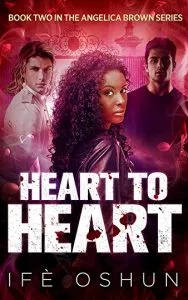
4 Unhelpful but Hilarious Subject Headings for Romance Novels
This content contains affiliate links. When you buy through these links, we may earn an affiliate commission.
You’ve probably never paid attention to the subject headings for romance novels if you’ve gotten them from the library. You might not even know what a subject heading is! In the library world, subject headings—aka those official statements about the theme or topic of a book that you see in the library’s online record for a book—are a big deal. Ideally, subject headings help readers find the kind of books and information that they’re looking for. Some examples of subject headings are: “Canada—History—War of 1812” or “Hip Hop—New York (state)—New York.” These kinds of subject headings are very precise and helpful—you can click on them and see all the books at a given library on that topic! But when you’re talking about fiction, and romance in particular, subject heading are a little…well let’s just say interesting.
 The thing is, subject headings can be quite funny because they use this standardized and formal language even for informal topics. In other words, they usually don’t use natural language; they don’t sound like how people actually talk. What I’ve discovered in the last few months as I’ve been diving into reading romance novels for the first time (see my Book Riot article Has Internalized Misogyny Stopped Me from Reading Romance Novels My Whole Life? for more on that reading project) is that the subject headings applied to romance novels are not really the most helpful, but they are often very funny.
There seem to be a plethora of slightly different subject headings used to describe romance novels that are all saying the same thing—that this book is about two people falling in love—but using hilariously stiff language. Here are four of my favorite ones that I’ve encountered so far.
The thing is, subject headings can be quite funny because they use this standardized and formal language even for informal topics. In other words, they usually don’t use natural language; they don’t sound like how people actually talk. What I’ve discovered in the last few months as I’ve been diving into reading romance novels for the first time (see my Book Riot article Has Internalized Misogyny Stopped Me from Reading Romance Novels My Whole Life? for more on that reading project) is that the subject headings applied to romance novels are not really the most helpful, but they are often very funny.
There seem to be a plethora of slightly different subject headings used to describe romance novels that are all saying the same thing—that this book is about two people falling in love—but using hilariously stiff language. Here are four of my favorite ones that I’ve encountered so far.
I believe this is just a fancy and convoluted way of saying love triangle (see Heart to Heart by Ife Oshun for an example of this virtually unknown topic [wink]). It may be up for interpretation, however. Let me know what you think it means.
Is this a very prim and proper way of saying there are two (or more) people who want to have sex with each other in this book? I think so. (PS: check out Alisha Rai’s A Gentleman in the Street for a prime example of “interpersonal attraction.”)
 The thing is, subject headings can be quite funny because they use this standardized and formal language even for informal topics. In other words, they usually don’t use natural language; they don’t sound like how people actually talk. What I’ve discovered in the last few months as I’ve been diving into reading romance novels for the first time (see my Book Riot article Has Internalized Misogyny Stopped Me from Reading Romance Novels My Whole Life? for more on that reading project) is that the subject headings applied to romance novels are not really the most helpful, but they are often very funny.
There seem to be a plethora of slightly different subject headings used to describe romance novels that are all saying the same thing—that this book is about two people falling in love—but using hilariously stiff language. Here are four of my favorite ones that I’ve encountered so far.
The thing is, subject headings can be quite funny because they use this standardized and formal language even for informal topics. In other words, they usually don’t use natural language; they don’t sound like how people actually talk. What I’ve discovered in the last few months as I’ve been diving into reading romance novels for the first time (see my Book Riot article Has Internalized Misogyny Stopped Me from Reading Romance Novels My Whole Life? for more on that reading project) is that the subject headings applied to romance novels are not really the most helpful, but they are often very funny.
There seem to be a plethora of slightly different subject headings used to describe romance novels that are all saying the same thing—that this book is about two people falling in love—but using hilariously stiff language. Here are four of my favorite ones that I’ve encountered so far.



 Triangles—Interpersonal Relations—Fiction
Triangles—Interpersonal Relations—Fiction Interpersonal Attraction—Fiction
Interpersonal Attraction—Fiction 







